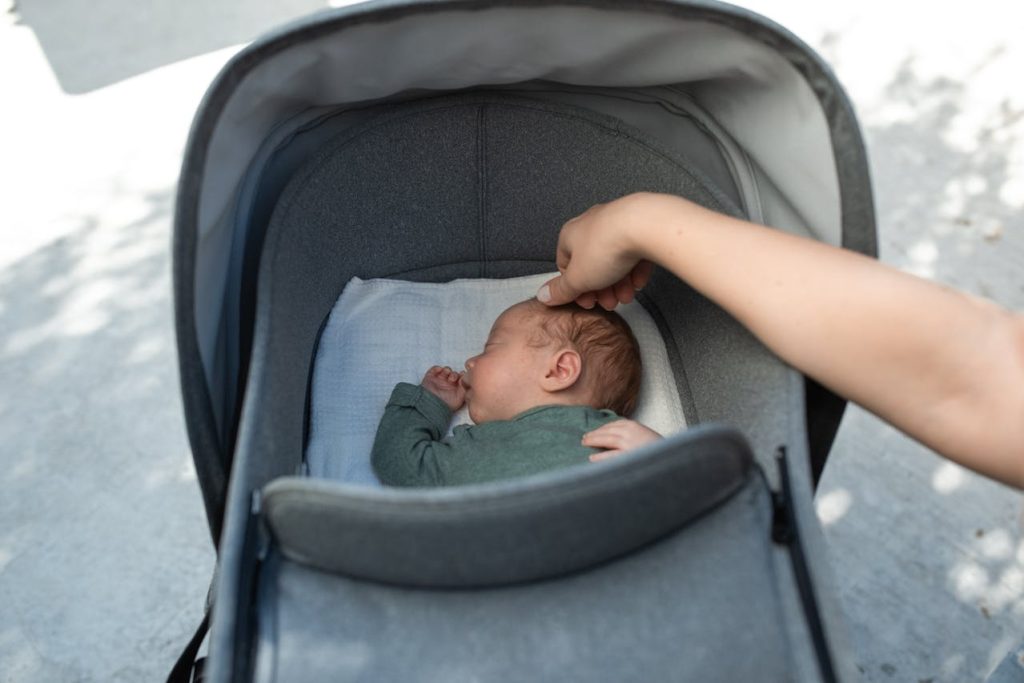For most parents-to-be, the pram is one of the most exciting purchases. It represents freedom, anticipation, and the promise of walks with a tiny new family member. Yet, despite being such a practical item, the pram carries a surprising amount of superstition across the world. From warnings about bad luck to protective rituals, these beliefs reveal how much care and anxiety people invest in the arrival of a baby.
Let’s take a little tour of pram folklore, from Europe to the Americas and beyond.
Don’t Keep the Pram at Home Before Birth
Perhaps the most widespread superstition is that a pram should never be kept in your house before the baby is born. The reasoning? It might “tempt fate” or bring misfortune, as though preparing too soon could jinx the outcome.
On the other hand, buying a pram early is not considered bad luck. The superstition lies in keeping it inside your home before the baby arrives. That’s why many families find creative solutions: purchasing the pram in advance but storing it in a friend’s garage, a neighbor’s spare room, or a storage unit until the baby’s safe arrival. Logically, it makes sense to be prepared, but emotionally, the old belief still lingers in the background.
Never Look Into an Empty Pram
Another common belief warns against peeking into an empty pram. Some say it invites sadness, others that it attracts bad spirits or even death. While this may sound dramatic, it shows how strongly people once feared leaving a cradle or pram “waiting” without a child in it. In many families, parents prefer not to test the superstition and avoid unpacking or pushing the pram until it’s truly needed.
Italy: Buy It After the Birth
In Italy, many parents won’t buy a pram before the baby arrives at all. Tradition suggests waiting until after the birth to avoid bad luck. It’s not uncommon for fathers or grandparents to head to baby shops immediately after the happy news, while the mother rests in the hospital. Practical? Maybe not. But for Italians, it’s a long-standing tradition that brings peace of mind.
Germany: A Talisman in the Pram
German families often add a small protective item to the pram before its first use. It might be a tiny angel figurine, a silver medallion, or a favorite soft toy. This is believed to guard the child from envy, negativity, or misfortune. The pram isn’t just a vehicle. It’s seen as a space that needs to be blessed or protected before the baby’s first ride.
Russia & Ukraine: Never Leave It Empty Outside
In Eastern Slavic traditions, an empty pram should never be left standing outside. The idea is that an abandoned pram might attract the “evil eye,” a harmful glance of jealousy or ill will. To prevent this, people make sure the pram is always covered or never sits completely empty in public. Even today, many parents in those regions feel uneasy about leaving a pram unattended.
The UK: The First Ride Matters
In Britain, there’s a belief that a baby’s first pram ride should take place in a park or in nature rather than in a noisy, urban street. The reasoning is symbolic: starting life’s journey in greenery and fresh air is supposed to ensure a peaceful, healthy life. Some even insist that the first person to push the pram should be the mother. If someone else does it first, the child may supposedly become restless or unsettled.
The US: Baby Showers but No Prams

In the United States, expecting parents often celebrate with a baby shower, where family and friends bring gifts. Interestingly, a pram is not a common present at these events. Part of the reason is practical; parents usually want to choose such a big item themselves, but there’s also an unspoken superstition about receiving a pram before the baby is born. Many parents simply feel it’s safer to wait.
Hungary: The Red Ribbon Protection
In Hungary, tradition holds that a small red ribbon should be tied to the pram before its first outing. This ribbon is thought to ward off the “evil eye”, essentially protection against jealousy or negative thoughts from others. It’s a simple but enduring gesture, still seen in many families today.
Scandinavia: Bread in the Pram
Some old Scandinavian customs recommend placing a piece of bread in the pram during the baby’s first walk. The bread symbolizes abundance and ensures that the child will never go hungry. While not widely practiced anymore, it shows how people wove symbols of prosperity and survival into even the smallest baby rituals.
Africa: First in the Arms, Then the Pram
In certain African cultures, parents prefer to carry the newborn in their arms for the very first journeys outside the home. The pram only comes later. This act emphasizes closeness and protection during the child’s earliest days. The pram isn’t rejected; it’s just introduced gradually, once the baby is considered strong enough to be apart from constant physical contact.
More Than Wheels and Fabric
Prams may look like nothing more than wheels, fabric, and a frame, but for expectant parents, they hold far more than that. They carry all the emotions that come with waiting for a baby: excitement, nerves, joy, and above everything else, love. Superstitions around them may sound old-fashioned, but at their heart, they show just how deeply people want to protect a new life.
Whether your pram is tucked away in a relative’s garage, tied with a red ribbon for luck, or standing proudly in your hallway waiting for its first outing, the real magic has nothing to do with charms or traditions. It’s in the love and anticipation of the tiny person who will soon be nestled inside.












